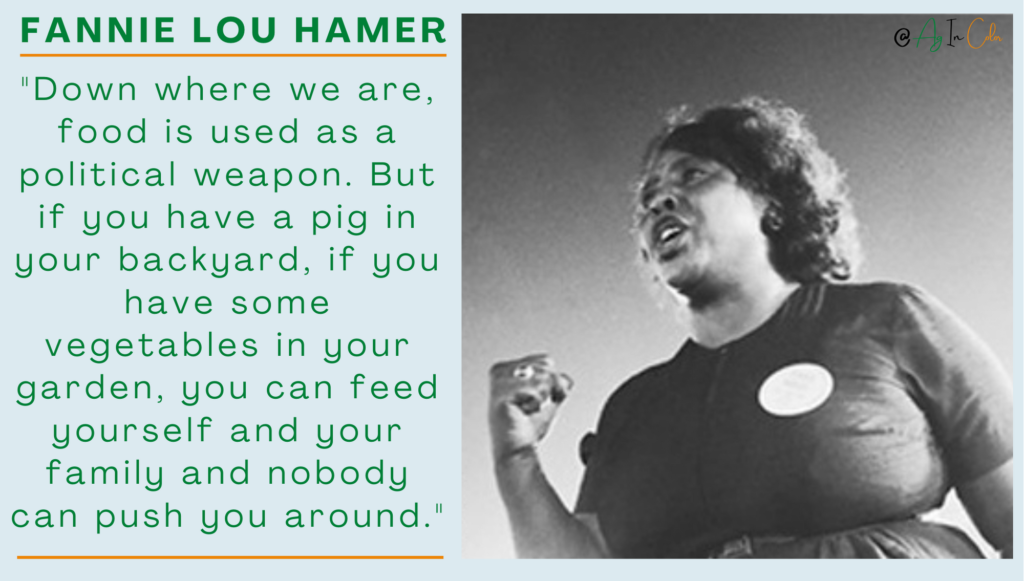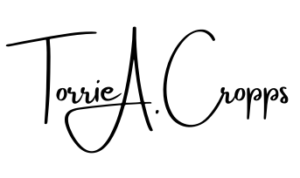“Down where we are, food is used as a political weapon. But if you have a pig in your backyard, if you have some vegetables in your garden, you can feed yourself and your family and nobody can push you around.”
Fannie Lou Hamer
Fannie Lou Hamer is well known as a civil rights leader for her work with the Student Non-Violent Coordinating Committee (SNCC) and the Mississippi Freedom Democratic Party. However, what I learned about later in life was her work in agriculture.
In 1968, she started a “pig bank” which provided free pigs for Black farmers to breed, raise, and slaughter. The following year, she started the Freedom Farm Cooperative (FFC). The FFC was a community-based, rural and economic development initiative which provided land for Black folks to own and farm collectively. The FFC allowed Black folks the opportunity to stay in the South, live off the land, and create and contribute to a healthy community building upon an alternate food system as a cooperative. Hamer felt that if she had a pig and a garden “she might be harassed and physically harmed but she would not starve to death.”
The FFC was designed to meet three primary needs: 1) develop an agricultural cooperative to meet the food and nutritional needs of Sunflower county’s most vulnerable; 2) create clean, affordable, and safe housing; and 3) build an entrepreneurial clearninghouse which would provide resources for new business owners and retraining for folks with limited educational skills but with manual labor experiences. White politicians and business people attempted to thwart federal funding and anti-poverty resources to impoverished Black farmers and farmworkers by restricting their votes and maintaining racial hierarchy. But. HARRY BELAFONTE said oh no baby, not today [Or maybe he sang it. Ok, I’ll go. I’m wrapping up lol] and donated funds for the FFC. Harvard University student organizations also helped with fundraising efforts.
The FFC community gardens helped to create self-sufficiency and increase access to healthy food. FFC members worked collaboratively to crop upkeep, growing greens, kale, corn, sweet potatoes, and other goods. Some of the harvest was donated to needy families, and the rest was shared by cooperative members. If there was a surplus, it was shipped (sometimes as far as Chicago) to families in need. Income from crops went to support mortgage payments on the land.
Friends, this is where I leave the rest to you. There is so much more to learn about Mrs. Hamer. Below are some starting points. Do share with me what you’ve learned about Mrs. Hamer!
Resources:
- A Pig and a Garden: Fannie Lou Hamer and the Freedom Farms Cooperative [article]
- A Voice That Could Stir an Army [book]
- The Speeches of Fannie Lou Hamer [book]
- Fannie Lou Hamer’s Revolutionary Practical Theology: Racial and Environmental Justice Concerns [book]
- For Freedom’s Sake: the Life of Fannie Lou Hamer [book]
- Fannie Lou Hamer Lesson Plan [website]
- There’s always our good sis Google for the free resources/websites! Also, I encourage you to see if a local Black bookstore has one of the books!


